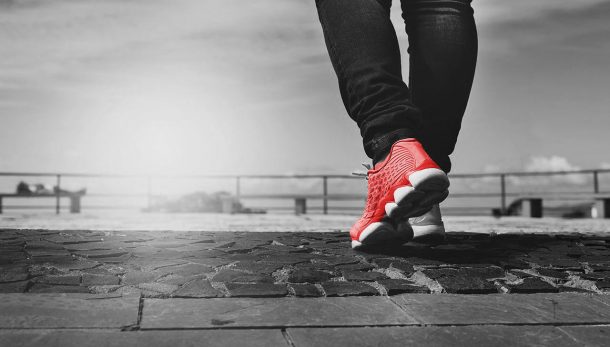
Moving to the new normal…
For many of us, the daily commute is going to be something from the past. As we approach the end of the COVID restrictions, it’s becoming clear that many office-based based jobs are not going to be done the same way. Organisations are talking about the future of work and envisaging more home-based time and only getting together for truly collaborative activities in workspaces that are specifically designed for this purpose.
There are so many advantages to all of this – but there’s a catch: the move to the new normal might not involve much movement at all.
If are going to embrace a future of healthy high performance, this cannot be based on sitting down all day, slumped in front of a screen, doing back-to-back video calls!
The link between illness and sitting is well established. As long ago as the 1950s, researchers found that on double decker busses, drivers were twice as likely to have heart attacks as their conductor colleagues.
Sitting is now recognised as being the new smoking in terms of health risks: ten hours a day (which is not uncommon) being linked clearly to obesity, hypertension, type 2 diabetes and even early death.
In fact, type 2 diabetes should be renamed ‘walking deficiency syndrome’ because it is not a ‘real disease’, according to one of Britain’s leading medical practitioners, Sir Muir Gray. Controversial? Maybe, but Gray has done extensive research on how modern lifestyles such as sitting at a desk are contributing to the risk of disease and that’s the description he has coined.
And it’s not just the body that suffers. There’s good evidence that exercise really helps with mild to moderate depression and anxiety – so the lack of it could be a problem. Exercise not only increases blood flow to the brain, but it releases endorphins, the body’s very own natural antidepressant. It also releases other neurotransmitters, like serotonin, which lift mood.
So, ditching the stress of the commute might a good thing, but we shouldn’t replace it with hours of screen-based work, sitting still.
Let’s remember the clear advice from the NHS:
Adults should do some type of physical activity every day. Any type of activity is good for you. The more you do the better.
So, it’s yes to the gym, to running, walking, cycling and playing sports but it’s also yes to a getting moving in general and in our next blog we’ll explore the benefits of NEAT (non-exercise activity thermogenesis) and how small changes to our lifestyles, consistently applied, can really add up to something positive.
Want to know more? Search the range of resources here on sane.works. There are book recommendations, links to websites, TED talks and worksheets and we are always adding to the list! Click here to begin.

Start The Discussion